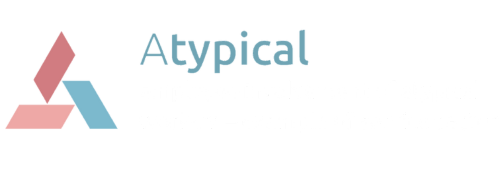The challenges of the European Union and the labour market
The document “White Paper on the future of Europe. Reflections and scenarios for the EU27 by 2025” of 1 March 2017 stresses that the creation of a single internal market should be pursued, one of the objectives of which is to improve the living and working conditions of the citizens of the European Community. The scenarios envisaged are:
- continuation – implementation of a positive reform agenda;
- nothing beyond the single market – focus on deepening some key aspects of the single market;
- those who want more, do more – enabling Member States who wish to work more closely together in specific areas;
- do less together, but more effectively: focus on achieving results more effectively and more quickly in certain policy areas (innovation, trade, security, migration, border management and defence), with less focus on other issues;
- do much more together: speaking with one voice on the international stage, tackling key issues together, especially security and defence.
In the new Strategic Agenda for 2019- 2024 of 20 June 2019 the European Council identified four priority areas to guide the work of the EU institutions over the next five years in response to the challenges and opportunities arising from the emerging global situation. These areas are:
- protect citizens and freedoms;
- develop a strong and resilient economic base;
- build a climate-neutral, green, fair and social Europe;
- promoting European interests and values on the global stage.
The six priorities include:
- The European Green Deal;
- A Europe Fit for the Digital Age;
- An economy that works for people;
- A stronger Europe in the world;
- Promoting our European way of life;
- A new push for European democracy.
In the aftermath of the COVID-19 pandemic, a European recovery plan called “NextGenerationEU” has been developed to provide an opportunity to rebuild after the emergence of the coronavirus, which caused enormous social and economic damage. The funds are intended to support recovery in many areas. Europe after the COVID-19 pandemic must be more digital, greener, more resilient and better prepared for current and future challenges. The main objective is to transform it into a modern, competitive and resource-efficient economy and society. These changes must be accompanied by the creation of better quality jobs. Reforms should cover the following areas:
- green transformation;
- digital transformation;
- smart, sustainable and inclusive growth and jobs;
- social and territorial cohesion
- health and resilience;
- policies for the next generation, including education and skills.
IMPORTANT
“NextGenerationEU” is the largest programme of measures to revitalise the European economy.
***
In particular, the Digital Europe funding programme aims to bring information and communication technologies closer to businesses, citizens and public administrations in order to maximise benefits and meet innovation needs, notably in the field of industrial relations. A globally competitive market must offer modern, safe and fair working conditions, promote the skills of the workforce needed for change, provide opportunities for career development and foster social inclusion. Europe must strive for an open, democratic, and sustainable society based on the values and principles developed so far. In this context, reference should be made to the Charter of Fundamental Rights of the European Union of 7 December 2000, which states that every worker has the right to working conditions which respect his or her health, safety and dignity. They have the right to limitation of maximum working hours, to daily and weekly rest periods and to an annual period of paid leave.
As a result of the measures taken to prevent the spread of the coronavirus, platform work has become increasingly popular and is now seen as a typical service for the transport and delivery of shopping and food. As a driver of innovation and a factor in employment growth, it has triggered the need to study the working conditions and social aspects of those who carry out this work. Platform work is very heterogeneous, which makes it difficult to regulate in order to better balance the interests of users and standardise labour rights. Some are freelancers who value autonomy, but there are also those who experience subordination and control in terms of wage levels and working conditions. An attempt to address the fundamental issues of eliminating misclassification and granting certain rights is the draft Directive of 9 December 2021 on improving working conditions through online platforms.
IMPORTANT
Due to the spread of modern digital technologies, efforts have been made to regulate atypical forms of employment that depend on them and to create protective working conditions.
***
Another example of the regulatory impulse for atypical work is the European Parliament resolution of 21 January 2006 with recommendations to the Commission on the right to disconnect, i.e. not to engage in tasks outside working hours and not to participate directly or indirectly in communication via digital tools. It should also be noted that a new European social partners’ agreement on telework is in the process of being adopted. It aims to revise the previous social agreement of 2002, which was not converted into an EU directive. Although there is no general regulation, remote work appears in the directive on work-life balance for parents and carers of 20 June 2019. It states that workers with children up to a certain age (at least eight years old) and carers have the right to request flexible working arrangements for personal care. According to the definition adopted, flexible working arrangements are defined as the use of remote working, flexible working hours or a reduction in working time.


